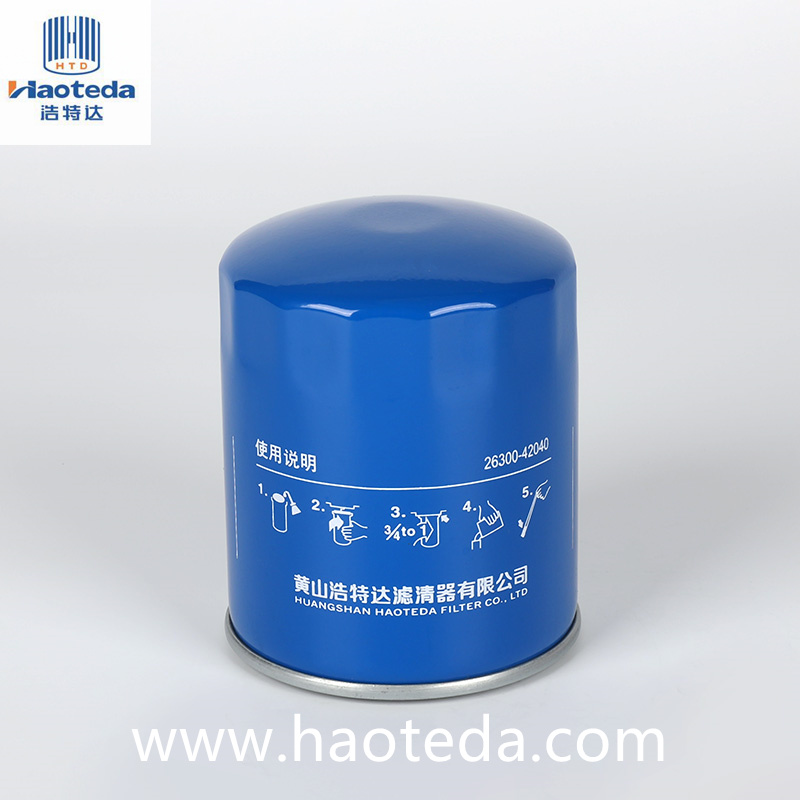When it comes to maximizing engine performance and longevity, the compatibility between synthetic oil filters and various motor oils is a topic that deserves attention. Whether you're using conventional, full-synthetic, or even bio-based oils, understanding how your Synthetic On Oil Filter interacts with these fluids can make all the difference in maintaining a smooth-running engine. Let’s dive into the intricacies of this relationship and explore what makes synthetic oil filters such a game-changer.
First, let’s talk about viscosity—the unsung hero of engine lubrication. Synthetic oil filters are specifically engineered to handle the unique characteristics of synthetic oils, which often have a higher viscosity index compared to their conventional counterparts. This means synthetic oils maintain their thickness and protective properties across a wider range of temperatures. However, this also raises an important question: how does the filter media cope with high-viscosity synthetic oils? The answer lies in the advanced materials used in synthetic oil filters. These filters are designed with precision-engineered pores that balance filtration efficiency with optimal flow rates. Without this careful calibration, a high-viscosity oil could lead to excessive pressure drop, causing strain on the engine. So, whether you’re driving in scorching summer heat or icy winter conditions, a synthetic oil filter ensures that your engine gets the right amount of lubrication without compromising performance.
But what happens when you throw bio-based or renewable synthetic oils into the mix? As sustainability becomes a growing concern, many drivers are exploring eco-friendly alternatives to traditional motor oils. While these bio-based oils offer environmental benefits, they can sometimes pose compatibility challenges for standard oil filters. For instance, certain bio-oils may degrade rubber seals or interact unpredictably with conventional filter media. This is where synthetic oil filters shine. Their robust construction and chemically resistant materials make them better suited to handle the unique properties of renewable oils. If you’re considering making the switch to bio-based lubricants, pairing them with a high-quality synthetic filter ensures seamless integration and reliable engine protection. After all, no one wants to risk engine damage just because their synthetic-on-oil filter wasn’t up to the task.

Another fascinating aspect of this compatibility discussion is how synthetic oil filters adapt to different oil change intervals. Full-synthetic oils are renowned for their extended service life, often lasting anywhere from 7,500 to 10,000 miles before needing replacement. But here’s the catch: not every oil filter is built to last that long. Conventional filters might clog or degrade prematurely, leaving your engine vulnerable to contaminants. That’s why investing in a synthetic oil filter is crucial if you’re using long-life synthetic oils. These filters boast higher dirt-holding capacities and superior durability, ensuring they remain effective throughout the entire oil change interval. It’s like having a pit crew for your engine—always ready to keep things running smoothly, mile after mile.
Of course, we can’t ignore the role of additives in this equation. Many modern synthetic oils come fortified with detergents, anti-wear agents, and other performance-enhancing compounds. While these additives improve engine cleanliness and reduce friction, they also place additional demands on the oil filter. A subpar filter might strip away beneficial additives or fail to capture harmful particles effectively. On the other hand, a top-tier synthetic oil filter works harmoniously with these additives, allowing them to do their job while still providing exceptional filtration. Think of it as a symbiotic relationship—one that keeps your engine humming along happily, regardless of the type of oil coursing through its veins.
The marriage between synthetic oil filters and various motor oils is one of precision engineering and thoughtful design. Whether you’re dealing with high-viscosity synthetics, eco-conscious bio-based oils, or additive-rich formulations, a synthetic-on-oil filter proves time and again that it’s the ultimate partner for your engine. By choosing the right filter for your specific oil type, you’re not just protecting your vehicle—you’re unlocking its full potential. So next time you’re due for an oil change, remember: the secret to peak performance isn’t just in the oil itself but also in the filter that keeps it flowing cleanly and efficiently.
 English
English
 English
English Español
Español Français
Français
 +86-139-6774-0263
+86-139-6774-0263









